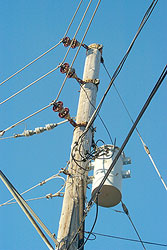 New England Division Director Tom Frenaye, K1KI writes:
New England Division Director Tom Frenaye, K1KI writes:
Dear ARRL Member in Massachusetts,
We need your help in our ongoing fight against Broadband over Power Line (BPL) interference. As you may have heard, the ARRL was successful in obtaining language in a U.S. House of Representatives bill, HR 5252, requiring that the FCC study and report on the interference potential of BPL systems. The bill was adopted by the House Commerce Committee and will be on its way to the House floor for a vote shortly.
Now we must turn our attention to the Senate, where similar language is needed. Senator John Kerry is a member of the Senate Committee on Commerce, Science, and Transportation, which is now holding hearings on telecommunications legislation. We need Senator Kerry’s support of language addressing the BPL interference issue when the Senate bill is marked up in his committee on June 8.
Please write to him today. A sample letter follows. Please personalize it as much as you can and send it, preferably by FAX to the number shown. Please also send a copy to the ARRL’s Government Relations firm:
Attention: Eric Heis, KI4NFC
Chwat & Company, Inc.
625 Slaters Lane, Suite 103
Alexandria, VA 22314
Fax (703) 684-7594
eric.heis@chwatco.com
Thank you for your assistance and support. If you want to email me in reply to this message, please use the email address shown below.
73,
Tom Frenaye, K1KI
Director, New England Division
ARRL – The National Association for Amateur Radio
k1ki@arrl.org
_____
SAMPLE LETTER TO SENATOR KERRY
[DATE]
Honorable John Kerry
United States Senate
304 Russell Senate Office Building
Washington, DC 20510
Via FAX 202-224-8525
Dear Senator Kerry,
I am writing as one of the 14,000 federally licensed radio amateurs of Massachusetts to request your help with legislation in the Senate Commerce, Science and Transportation Committee. During the June 8th markup of S. 2686, the Communications, Consumer’s Choice, and Broadband Deployment Act of 2006, please support an amendment directing the Federal Communications Commission (FCC) to conduct a comprehensive study of the potential of “broadband over power line” (BPL) systems to interfere with public safety and other licensed radio services. Appropriate language drafted by the ARRL, the national association for Amateur Radio, reads:
“Within 90 days after the date of enactment of this section, the Federal Communications Commission shall conduct, and submit to the House Energy and Commerce and the Senate Committee on Commerce, Science, and Transportation, a study of the interference potential of broadband over power line systems leading to improved rules to prevent the deployment of systems having a potential to cause destructive interference to radio communication systems.”
A similar requirement that the FCC study and report on the interference potential of BPL systems is included in HR 5252 as reported out of the House Committee on Energy and Commerce.
BPL utilizes electric power lines to serve as the conductors of the broadband signals. Unfortunately, because the power lines are not shielded, they also act as antennas and radiate the signals into the air. These radiated signals will interfere with radio receivers tuned to the same frequency range. BPL has only been deployed to a very limited extent, but Amateur Radio already is experiencing severe BPL interference that the FCC has been unable or unwilling to correct. Unlike BPL, other methods of providing broadband Internet services to consumers, such as cable, DSL, wireless, satellite and Fiber to the Home, do not pollute the radio spectrum.
Not all BPL systems cause widespread interference to radio. The problem is that the FCC rules do not distinguish between BPL systems with a high potential for interference and those that are more benign. The FCC allows both kinds of systems to be deployed. This places an unreasonable burden on radio users, who must deal with the consequences of the interference. It is also unfair to the responsible BPL companies that have addressed the interference issue effectively but must compete with the spectrum polluters.
The reason we need your help is that the FCC continues to resist growing evidence that its rules are inadequate to protect radiocommunication systems, including those relied upon by First Responders, from radio spectrum pollution caused by BPL systems. The FCC needs to objectively and carefully review this evidence and adopt rules that will keep interference from BPL within reasonable bounds. Unfortunately, not only has the FCC shown no inclination to do that, the agency so far has failed even to enforce its existing rules in specific, well documented instances of harmful interference.
Because we need no infrastructure in order to communicate, the Amateur Radio Service is the only 100-percent fail-safe emergency communications resource in the world. The importance of this capability is documented on page 177 of the recent report of the Select Bipartisan Committee of the House of Representatives, “A Failure of Initiative,” on Hurricane Katrina. Amateur Radio is included in the list of “What Went Right” in the White House report, “The Federal Response to Katrina: Lessons Learned.” Amateur Radio is one of the few communications services that succeeded in Katrina’s aftermath. Interference from BPL emissions will significantly disrupt this unique capability.
Please require the FCC to protect radio services from BPL interference. Thousands of radio amateurs will be grateful for your support.
Sincerely,
__________[NAME]
___________[ADDRESS]
___________[CITY, STATE, ZIP]
__________[TELEPHONE AND EMAIL — OPTIONAL]
——————————————————————–
ARRL New England Division
Director: Thomas Frenaye, K1KI
k1ki@arrl.org
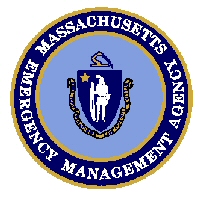 “Governor Romney has designated the week of June 5th through June 12th as Massachusetts Amateur Radio Week. Their efforts are being recognized because the Commonwealth’s more than 13,000 Amateur Radio operators continue to provide vital assistance to the MEMA, as well as local Emergency Management Agencies and Public Safety entities in times of emergency. Amateur Radio operators have donated these services free of charge, in the interest of the citizens of MA, as well as the world, for over 75 years.”
“Governor Romney has designated the week of June 5th through June 12th as Massachusetts Amateur Radio Week. Their efforts are being recognized because the Commonwealth’s more than 13,000 Amateur Radio operators continue to provide vital assistance to the MEMA, as well as local Emergency Management Agencies and Public Safety entities in times of emergency. Amateur Radio operators have donated these services free of charge, in the interest of the citizens of MA, as well as the world, for over 75 years.”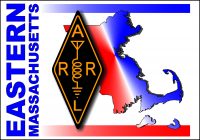

 A well-known Massachusetts contester and
A well-known Massachusetts contester and 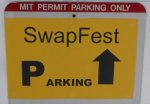 National Public Radio’s All Things Considered, May 9, 2006 broadcast a
National Public Radio’s All Things Considered, May 9, 2006 broadcast a 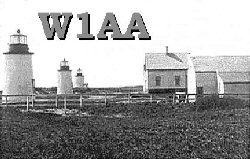 N1DT and K1VV plan to activate Three Sisters Lighthouses (ARLHS USA 975, 528 and 976) under the call W1AA on Saturday, May 20, 2006 from 11:30 UTC (7:30 AM EST) until 18:00 UTC (2:00 PM EST).
N1DT and K1VV plan to activate Three Sisters Lighthouses (ARLHS USA 975, 528 and 976) under the call W1AA on Saturday, May 20, 2006 from 11:30 UTC (7:30 AM EST) until 18:00 UTC (2:00 PM EST).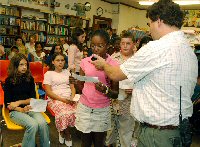 Roland Daignault, Jr., N1JOY writes on bcra-club list:
Roland Daignault, Jr., N1JOY writes on bcra-club list: The April, 2006 EMA traffic net and Public Service Honor Roll totals have been posted to
The April, 2006 EMA traffic net and Public Service Honor Roll totals have been posted to  At the request of Massachusetts Bay Red Cross, Eastern Massachusetts ARES will activate starting Thursday Morning for damage assessment operations in the North Shore. This operation could last several days and more volunteers maybe needed from across the section.
At the request of Massachusetts Bay Red Cross, Eastern Massachusetts ARES will activate starting Thursday Morning for damage assessment operations in the North Shore. This operation could last several days and more volunteers maybe needed from across the section. 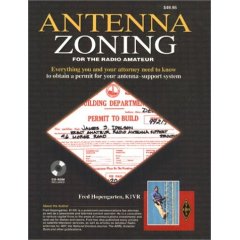 Eastern MA amateur and ARRL Volunteer Counsel Fred Hopengarten, K1VR will present at a
Eastern MA amateur and ARRL Volunteer Counsel Fred Hopengarten, K1VR will present at a 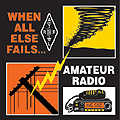 The ARRL Headquarters web site today carried a news item describing the efforts of New England and Eastern MA amateurs in the wake of disasterous flooding that has struck our area.
The ARRL Headquarters web site today carried a news item describing the efforts of New England and Eastern MA amateurs in the wake of disasterous flooding that has struck our area.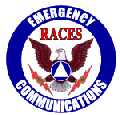

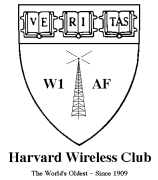 George Clark, W1XW writes:
George Clark, W1XW writes: New England Division Director Tom Frenaye, K1KI writes:
New England Division Director Tom Frenaye, K1KI writes: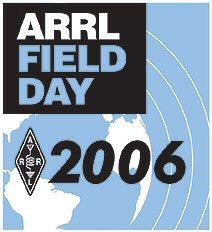 Mike Neilsen, W1MPN writes in his Monthly Eastern Massachusetts Section News Summary:
Mike Neilsen, W1MPN writes in his Monthly Eastern Massachusetts Section News Summary: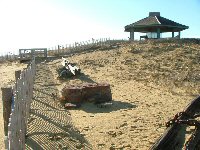
 The
The